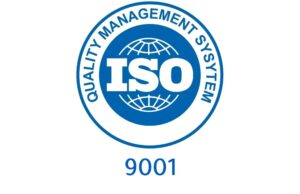
ISO 9001 is an international standard that specifies requirements for a quality management system (QMS). It is designed to help organizations consistently provide products and services that meet customer and regulatory requirements.
The key requirements of ISO 9001 include:
- Context of the organization: The organization must understand the context in which it operates, including its internal and external factors.
- Leadership and commitment: Top management must be committed to the QMS and provide the necessary resources to ensure its effective implementation.
- Planning: The organization must establish quality objectives and targets, and develop plans to achieve them.
- Support: The organization must provide the necessary resources and support to ensure the effective implementation of the QMS.
- Operation: The organization must implement and control the QMS, including its processes, procedures, and documentation.
- Performance evaluation: The organization must monitor, measure, analyze, and evaluate its performance, and take corrective action as needed.
- Improvement: The organization must continually improve the QMS.
The benefits of implementing ISO 9001 can include:
- Increased customer satisfaction: By meeting customer requirements, organizations can increase customer satisfaction.
- Improved quality: By identifying and controlling risks, organizations can improve the quality of their products and services.
- Reduced costs: By reducing defects and waste, organizations can reduce costs.
- Increased productivity: By improving efficiency, organizations can increase productivity.
- Improved reputation: Organizations that are certified to ISO 9001 are often seen as being more reliable and trustworthy.
If you are interested in implementing ISO 9001, there are a number of resources available to help you, including:
- The International Organization for Standardization (ISO): ISO provides a number of resources on its website, including the ISO 9001 standard itself, guidance documents, and training materials.
- National standards bodies: National standards bodies, such as the American National Standards Institute (ANSI) in the United States and the British Standards Institution (BSI) in the United Kingdom, can also provide guidance and training on ISO 9001.
- Consultants: There are a number of consultants who specialize in helping organizations implement ISO 9001.
The implementation of ISO 9001 can be a complex process, but it can be a valuable investment for organizations that are committed to improving their quality performance.